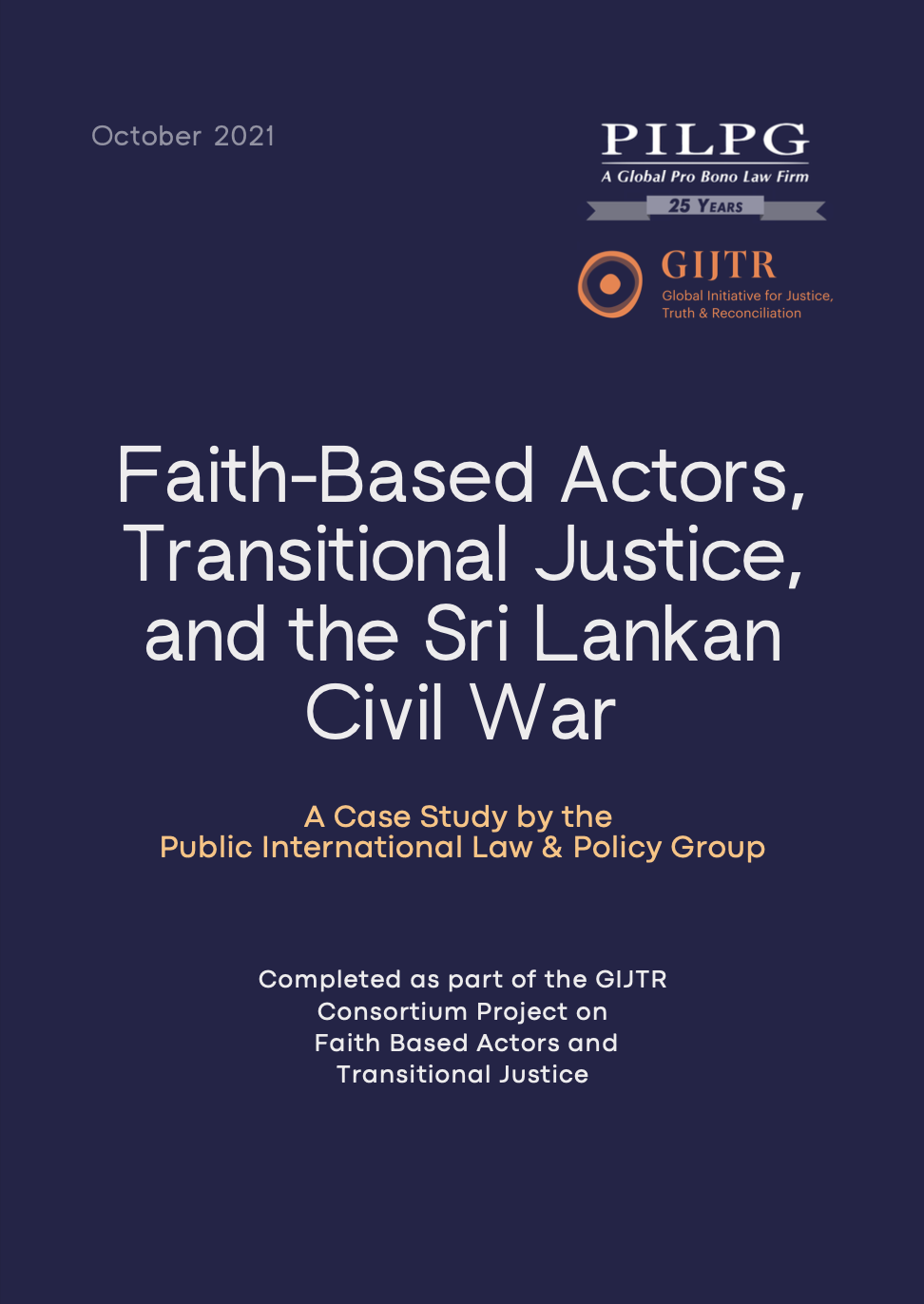Faith-Based Actors & Transitional Justice
With funding from the Global Initiative for Justice, Truth, and Reconciliation, The Public International Law and Policy Group worked with two Consortium partners—the International Coalition of Sites of Conscience and the Centre for the Study of Violence and Reconciliation on a research project with the aim of examining how engagement with faith-based actors can strengthen transitional justice processes, in light of the varied roles that religious and faith-based actors have played during periods of conflict and/or authoritarian rule.
The PILPG Team
PILPG’s Faith-Based Actors & Transitional Justice team was led by Drew Mann, Greta Ramelli, and Sarah Pribe.
Our Consortium Partners
The Faith-Based Actors & Transitional Justice program was a collaboration through the Global Initiative for Justice, Truth & Reconciliation. Diana Naoum from the International Coalition of Sites of Conscience, and Gugu Nonjinge and Tsholofelo Nakedi from the Centre for the Study of Violence and Reconciliation were instrumental in the success of the project. Learn more about the GIJTR’s work on this project here.
Project origins
The Consortium’s work has shown that faith-based organizations are increasingly taking an active role in transitional justice processes and in mobilizing victim groups, affected communities and societies not just towards resolving conflicts, but in pursuing truth and justice in order to address consequences of gross human rights violations and achieve sustainable peace. Given the authority and trust accorded to religious leaders by many, including victim groups, perpetrators and affected communities, religious leaders have the potential both for broad outreach as well as access to people at the individual and community levels where inequities and insecurities felt most acutely. From South Africa, Sierra Leone, Zimbabwe and Mali in Africa, to Timor-Leste, Indonesia, Latin America and Ireland, religious leaders—whether local, national and international—have been key players in efforts to break with violent and oppressive pasts.
Sri Lanka Case study
GIJTR and local partners conducted research to produce case studies on key contexts in which religious and faith-based actors participated in formal or non-formal ways in transitional justice processes and the impact of their participation, or lack thereof, on these processes. The Consortium then used the findings of this examination to develop a first-of-its-kind assessment tool for relevant transitional justice stakeholders to determine how the engagement of religious and faith-based actors adds legitimacy or undermines transitional justice processes.
This Sri Lanka case study drafted by the PILPG team analyzes how faith-based actors can strengthen transitional justice processes and goals, particularly, truth, reparations, justice, and guarantees of non-recurrence by examining the case study of faith-based actors in the war between the Government of Sri Lanka and the Tamil Liberation Tigers of Tamil Eelam (LTTE) from 1983 to 2009.
Toolkit: Strengthening Transitional Justice through Engagement with Religious and Faith-based Actors
The Consortium’s findings have contributed to the development of the “Strengthening Transitional Justice through Engagement with Religious and Faith-based Actors: An Assessment Toolkit.” This toolkit outlines the potential role of religious and faith-based actors in addressing legacies of violations before, during and after the implementation of transitional justice processes. The text shares insights from multiple contexts that can serve as a starting point to design a transitional justice model in places where religious and faith-based actors play a crucial role within communities. Before using the assessment tool, refer to these brief guidelines prepared by the Consortium that both summarize the toolkit and represent the feedback of practitioners from a workshop that analyzed a set of pilot studies using the toolkit.





